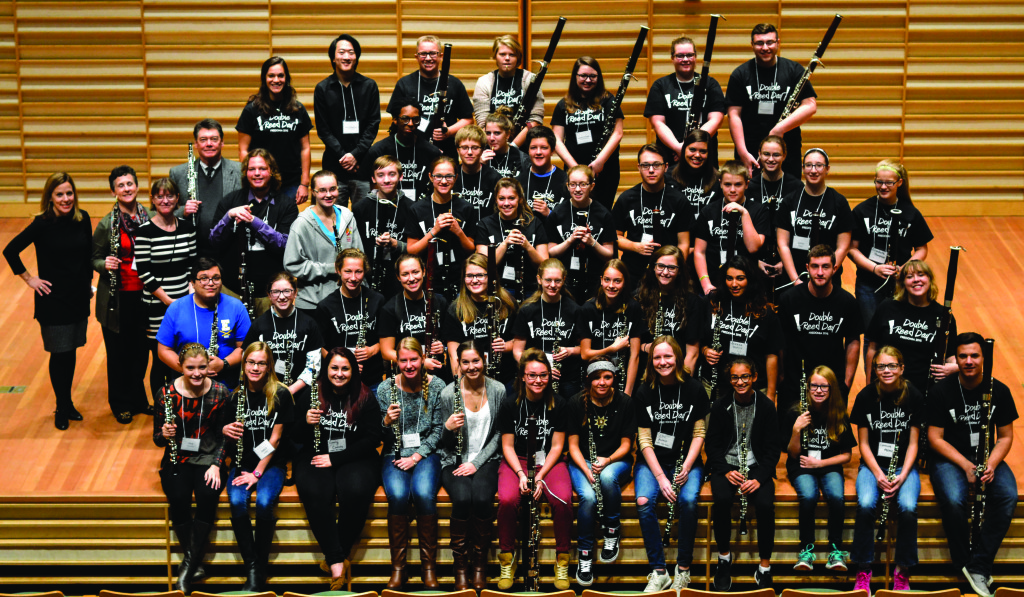HOLLY BURDICK
Special to The Leader
Double Reed Day was Sunday Oct. 25. It was a day to celebrate the unique double reed instruments and the many people who play them. This event held master classes for students of all ages for their instruments. Middle school, high school and college students were invited to participate. Vendors came, and lunch and T-shirts were provided for the students. Their music-filled day was a very eventful and unique learning experience.
The morning opened with a short concert. The faculty and School of Music students performed and showed their talents and instruments. After this, the students were invited onto the very same stage. Their first class began. Robert Sorton, the guest artist, spoke to them about his experiences, his journey to where he is now and tips to help his students.
Sorton is a master teacher, an oboist and an oboe reed maker. Sorton is an associate professor at Ohio State University. He teaches different courses involving the oboe and woodwind. He coaches chamber ensembles and has also performed with many different chamber ensembles. He was the assistant principal oboist of the Detroit Symphony Orchestra for about fourteen years.
He has performed at many different festivals and was principal and solo oboist of different festivals for many years. Sorton currently teaches at the Oxford Oboes Camp and the Midwest Oboe Camp. He taught at Florida International University, Wayne State University and Oakland University. Sorton has also received awards for his teaching. But he is perhaps most fondly known for his reedmaking. In essence, Sorton has made the oboe and the teachings of the oboe his life.
As stated before, Sorton talked about his experiences and tips to help students. He asked the students “how often do you practice?” Few students answered, not knowing what he was looking for. After doing the math of “working from nine to five with an hour lunch break, that’s working for seven hours.” He informed the audience that he used to practice a lot. A lot of that time was used to go back to “the basics.” In his eyes, those are most important skills.
It was also brought to attention that whenever needed, one must be able to know and say the name of the piece they are performing. It sounds like common sense, but there was a time that forced this information to be said. Although the students were unable to use their instruments with Sorton, personal experience and real-life knowledge are very important to hear about.
After lunch, the students participated in different classes. Dr. Sarah Hamilton taught a class for the oboists. Associate Professor Laura Koepke taught a class for the bassoonists. Sorton also taught a class for making reeds. Students learned how to do it, and Sorton was able to share more of his knowledge about the subject. Following these classes, a Chamber Music reading session took place.
During Double Reed Day, the students were broken up into groups and worked on a piece to perform for the final concert. There were three oboe groups and three bassoon groups. Alternating instruments, the groups performed their special piece. At the end, the entire orchestra was formed. Staff, guests, students and alumni joined together to create an orchestra to perform. They were accompanied by guest conductor Richard Cripps. It was an experience for everyone.
Cripps told the audience that he thought it was very cool because it was “the first time I have conducted both of my daughters at one time.”
Double Reed Day was fantastic music-filled learning experience for everyone. Those who shared the same interest, double reed instruments, were able to come together and learn about their interest. Laura Koepke explained how rare and exciting it was for the students who, at their school, are one of only one or two who play a double reed instrument and “now get to play in an orchestra of around fifty.” It was an experience for everyone.

